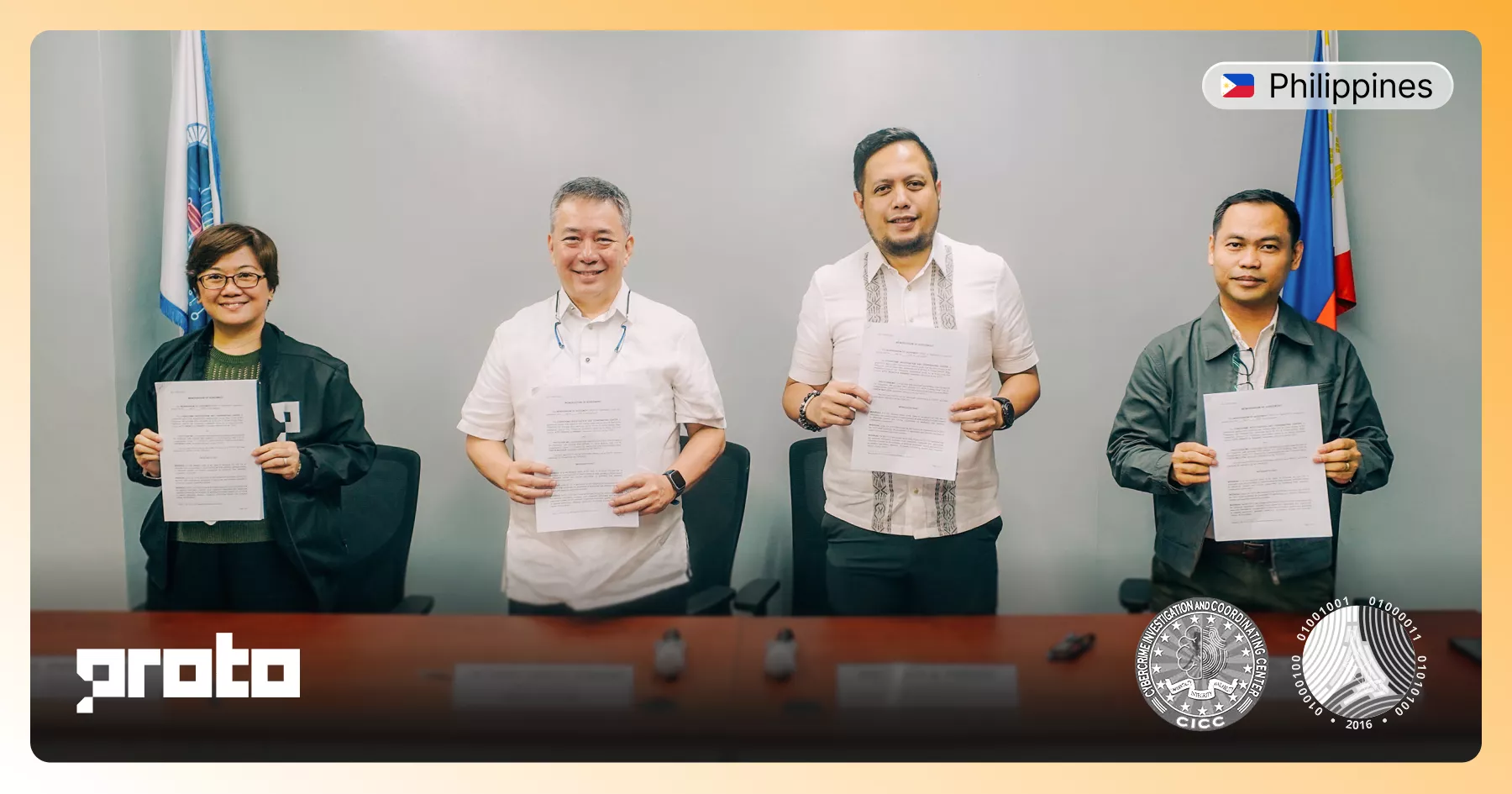The Cybercrime Investigation and Coordinating Centre (CICC) is the latest government agency in the Philippines to deploy a Proto AI agent. The CICC deployment aligns with its ongoing Scam Safe initiative and Proto’s scaleup of an integrated AI citizen support and complaints management systems with Gates Foundation implementation funding.
This deployment marks a significant evolution in the Philippines' digital public infrastructure, with the Cybercrime Investigation and Coordinating Centre stepping forward as a key access point for citizens to report financial scams that disproportionately affected the newest and most vulnerable consumers. With its large newly-banked population, the Philippines is particularly susceptible to the illicit scam industry, which is estimated to have stolen $1 trillion from the global economy and 1.9% of the Philippines GDP last year, according to the Global Anti-Scam Alliance.
CICC’s mandate to protect citizens from cybercrime aligns with the objective of the Proto scaleup project to ensure that Filipino consumers – especially those facing cyber threats and online fraud – can resolve complaints more quickly, fairly, and transparently. This mandate is paired with aggressive outreach initiatives, such as this month’s Scam Safe campaign to educate financial consumers on attack vectors.
The deployment of CICC’s AI agent – alongside Proto’s other deployments with the country’s central bank and securities commission – enables the opportunity of rapid AI-based routing of scam reports between government agencies.
The CICC operates its own service desk to efficiently address public concerns and inquiries. Through this dedicated channel, reports are properly documented, evaluated, and escalated for investigation, enabling the agency to determine and implement the most appropriate solutions.
Gates Foundation Senior Program Officer Jeremiah Grossman said: “The foundation is investing in consumer protection AI tools with the goal of building trust in digital services for the lowest-income communities. Through these projects, we hope to demonstrate the value of an automated grievance redress system for citizens, regulators, and governments – and catalyse broader adoption across emerging markets.”
Backed by the Gates Foundation, Proto is advancing its deployments in six low-to-middle income countries, including the Philippines and African nations such as Namibia and Rwanda.
Preparing a unified anti-scam ecosystem with AI agents

Using the Proto AI agents, Filipino consumers can lodge text and voice complaints in local languages like Tagalog and Cebuano via websites and messaging apps. Complaints are categorised using Proto’s proprietary natural language processing engine, matched with the appropriate agency or agencies, and tracked through a unified referral system.
Notably, both the Bangko Sentral ng Pilipinas (BSP) and the Securities and Exchange Commission (SEC) were already live on Proto’s platform through earlier deployments. As a result, the BSP successfully processed over 276,000 support sessions, facilitated 14.4 million messages, and resolved 89% of customer queries – powered significantly by its AI-driven system.
The CICC deployment integrates Proto’s AI agents directly into 1326, the National Anti-Scam Hotline, operated by the Cybercrime Investigation and Coordinating Center.
CICC Acting Executive Director Rojun Hosillos said: “Our partnership with Proto reinforces the government’s vision of a safer digital Philippines. By integrating Proto’s technology into 1326, we can process citizen reports faster, coordinate with law-enforcement agencies more efficiently, and ultimately recover more funds lost to scams. This system strengthens the backbone of national digital trust – empowering every Filipino to report fraud in real time and see that action is taken.”
Proto CEO Curtis Matlock said: “The Philippines is setting a global example for coordinated anti-scam governance. By combined an AI agent network with proactive legislation and citizen-facing tools managed by the CICC, the country is building not just a reactive hotline – but a living, intelligent infrastructure for public trust in the digital economy.”
About the Cybercrime Investigation and Coordinating Centre
The Cybercrime Investigation and Coordinating Centre is the primary government agency mandated to implement the Cybercrime Prevention Act of 2012 and coordinate the prevention, investigation, and suppression of cybercrime in the Philippines. Under the Department of Information and Communications Technology, the Centre ensures the protection of citizens from cybercrime threats and fosters a safe digital environment. With a strong mandate for cybersecurity, the CICC plays a vital role in investigating cyber incidents, coordinating law enforcement responses, and building public trust in digital services.



